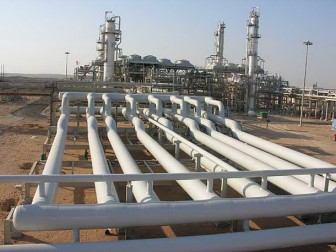 * Oil extends losses on ECB’s weak outlook for euro zone
* Oil extends losses on ECB’s weak outlook for euro zone
* Dollar up 0.6 pct against basket of currencies
* ‘Fiscal cliff’ countdown narrows as US lawmakers seek deal
* Coming up: U.S. Nov nonfarm payrolls, 8:30 EST Friday (Updates throughout, adds analyst comment and settlement prices)
NEW YORK, Dec 6 (Reuters) – Oil prices fell on Thursday after the head of the European Central Bank said the euro zone’s economic outlook faces “downside risk” and a recovery may not happen until later in 2013.
European economic woes could crimp global demand for oil, and investors also remain wary of budget negotiations among lawmakers in the United States. If lawmakers fail to reach an agreement within three weeks, around $600 billion in automatic tax increases and spending cuts would be triggered for 2013.
The ECB left interest rates unchanged at a record low 0.75 percent on Thursday and its president, Mario Draghi, warned of more weakness in the single-currency area.
“The Governing Council continues to see downside risk to the economic outlook for the euro area,” Draghi told a news conference after an ECB policy meeting.
He said euro zone economic activity should gradually recover “later in 2013”.
The euro weakened and the dollar rose more than 0.6 percent against a basket of currencies. A stronger U.S. currency usually pressures dollar-denominated commodities such as oil.
Brent January crude fell $1.78 to settle at $107.03 a barrel.
U.S. January crude lost $1.62 a barrel to settle at $86.26, posting a fourth straight day of losses.
U.S. RBOB gasoline and heating oil also fell, the latter reaching its lowest since Aug. 7, under pressure for a second day after U.S. data on Wednesday showed sharp increases in fuel stockpiles last week.
“Oil prices dropped on economic uncertainty in both Washington and Europe, with the ECB comments indicating it could take a year to start recovery there,” said Gene McGillian of Tradition Energy in Connecticut.
“The rise in U.S. fuel inventories is another factor pushing prices lower.”
Weekly data showed that U.S. gasoline inventories rose by 7.86 million barrels last week, the biggest weekly margin since 2001.
U.S. EMPLOYMENT DATA
For a measure of how the U.S. economic recovery is going, oil traders will be closely watching a U.S. November nonfarm payrolls report due on Friday.
Nonfarm payrolls are expected to have increased by 93,000 last month, with storm disruptions related to East Coast Hurricane Sandy and fears of “fiscal cliff”-induced austerity hobbling company hiring.
Meanwhile, the number of Americans filing new claims for unemployment benefits fell for a third straight week, a report showed on Thursday, dropping back to the pre-Sandy range.
Initial claims for state unemployment benefits dropped 25,000 to a seasonally adjusted 370,000.
MIDDLE EAST UNCERTAINTY
Oil futures fell in spite of lingering concerns that political tensions and violence in the Middle East could trigger oil supply disruptions.
Egyptian President Mohamed Mursi, in a televised address, said the country’s deepening political crisis should be resolved through dialogue and expressed “sorrow” for violence at protests that have gripped the country in recent days.
Clashes killed at least seven near the presidential palace in Cairo. Protesters accuse Mursi of a power grab since he issued a decree on Nov. 22 that increased presidential powers. Some of Mursi’s top advisers resigned this week.
Israel’s plans to build more settlements in the West Bank prompted the European Union to summon Israel’s envoy on Wednesday.
Syria’s worsening civil war was one subject of talks between U.S. Secretary of State Hillary Clinton and Russian Foreign Minister Sergei Lavrov on Thursday in Dublin, but few details of the meeting were made public. (Reporting by Joshua Schneyer and Robert Gibbons in New York, Shadia Nasralla in London and Ramya Venugopal in Singapore; Editing by Nick Zieminski and Dale Hudson)
Source: http://sg.finance.yahoo.com/news/7-oil-falls-euro-zone-211031113.html


























